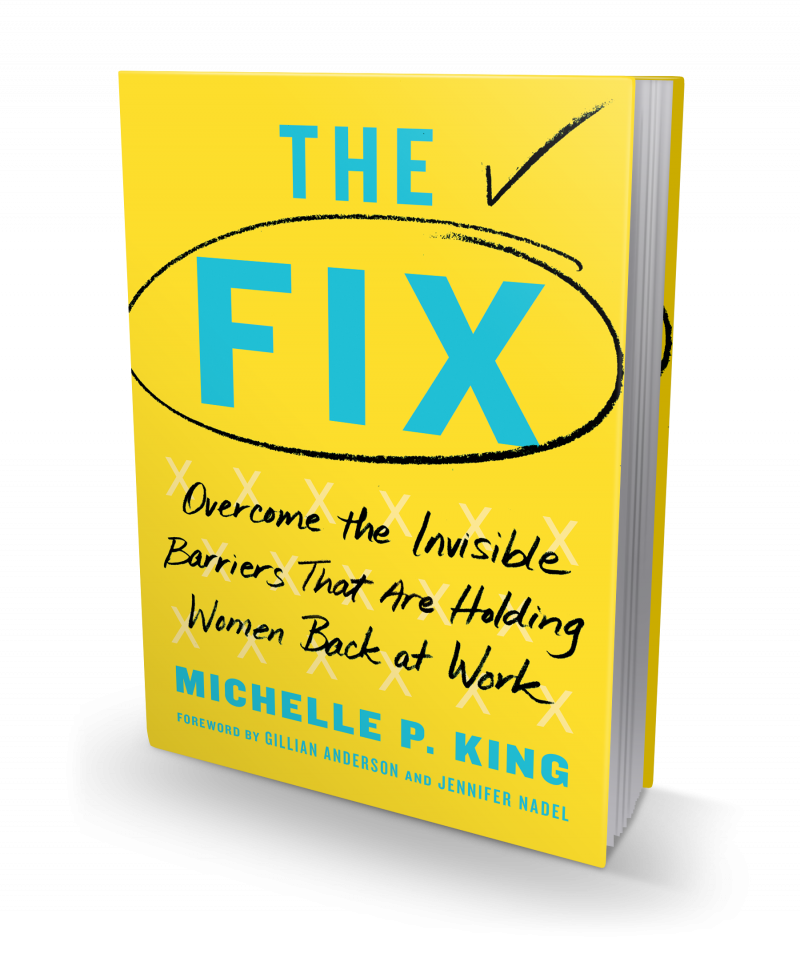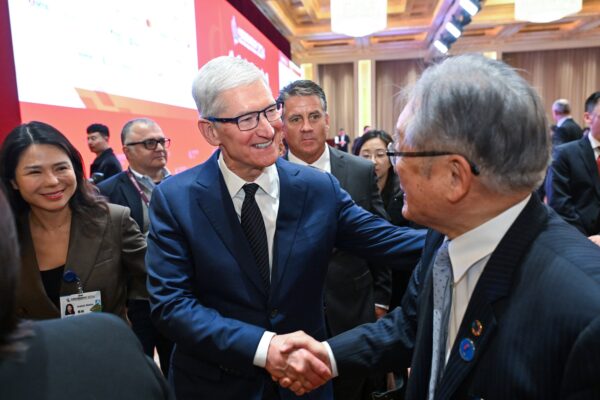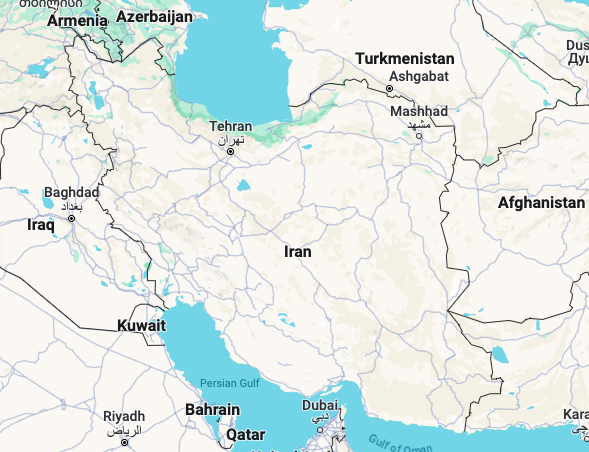- Michelle P. King is a leading global expert on gender and organizations and is the director of inclusion at Netflix.
- The following is an excerpt from her new book, “The Fix: Overcome the Invisible Barriers That Are Holding Women Back at Work.“
- In it, she describes how senior leaders often get ahead because they know how to “play the game” of office politics.
- But women don’t have the same privilege of engaging in office politics as men. In fact, playing politics can actually serve as a barrier to their advancement.
- Each of us can help make diversity and inclusion a part of everyday life for employees if we’re willing to give up some of our standing at work to advocate for others.
- Visit Business Insider’s homepage for more stories.
When I began my career in human resources more than 18 years ago, I started to notice that some people were better equipped to manage the political aspects of work. At the time, part of my job was supporting senior leaders with managing their teams. As the years passed, I started to notice the same individuals getting promoted or rewarded over their peers – peers who were often far more qualified and experienced.
I was surprised by this, so I voluntarily interviewed 32 senior leaders to better understand why these individuals were so successful. I always got the same answer. These frequently promoted people all have one thing in common: They’re masters at getting the support they need for an idea, promotion, pay rise, project, or opportunity. In other words, they know how to “play the game.” They have political skill. To navigate workplace politics, you need to be able to build relationships, network, collaborate, and persuade others. If you do this in just the right way, then you can significantly improve your performance ratings, promotion opportunities, reputation, and career progression.
Ryan, one of my male colleagues, is a master at office politics. He knows how to get anything approved or supported at work. One day I asked him how he managed to get people on his side. He told me that the key to his success was spending time with leaders or decision-makers. He would take every opportunity to have drinks, get lunch, or even go on bike rides with key leaders. This was how he developed enough goodwill that when it came time to ask for a favor or approval, there was a good chance he would get it.

While Ryan was charming, persuasive, and good at his job, he had one thing that women in similar positions did not: access. Ryan could go for drinks, lunches, and bike rides because he was invited. He was similar to his leaders - this is male privilege in action. Ryan would always be accepted by these leaders because he looks, speaks, and dresses like most of them. This makes it easier for Ryan to bond with men who are in positions of power. Men engage in politics by including, favoring, being loyal, trading favors, and protecting each other. For men, engaging in politics is simply about following the rules of the game, and it's something they do frequently within companies to get ahead. While being politically skilled might help people advance at work, there is one major problem with this: It doesn't work for everyone in the same way.
Women don't have the same privilege of engaging in office politics that men do. This makes it harder for women to build relationships, alliances, and supportive informal networks. It's no surprise that women often rely more on formal systems and career development processes to advance than office politics. Because of this, experts might conclude that women just don't understand office politics or value it the same way men do. The book "Political Skill at Work: Impact on Work Effectiveness" argues that women deny the value of corporate politics, which makes them "politically naïve." As such, it is recommended that women undergo training and mentoring programs to fix their lack of political engagement.
Of course, it's not that simple.
Research finds that engaging in office politics is something we associate with men. The behaviors people use to gain access to powerful individuals, important information, or opportunities are more masculine. This would happen all the time with Ryan. He found it easier to bond with male leaders, not only because he had access to them, but because he could joke and talk with them about sports in a way that was harder for women on the team. Even if we fix women by teaching them to joke in masculine ways and become one of the guys, women still won't be accepted because they are violating the standards society holds for how women are meant to behave.
When it comes to office politics, all women face a catch-22. They can't engage in office politics like men do because they risk being seen as masculine, so they lack access. And women also can't engage their political skills in more feminine ways, because that's not how you play the game. Balancing this requires significant mental energy from women and racial minorities, who must learn to play office politics in just the right way. Women who engage in political behaviors often find it to be draining, stressful, and tiring. They're being asked to adopt behaviors that are not their own. It's unfair to assume that this is even possible or will result in the same benefits that white men receive.
Not only does office politics feel inauthentic to women, but women find office politics to be irrational, aggressive, competitive, and important for advancing individual goals but not for wider organizational success (which is more important to women). In fact, in one study, women's descriptions of barriers to their career advancement actually described office politics, which included things like being excluded or not having access to networks. Some studies have even found that women may turn down management roles because of their distaste for office politics. This really matters. The way organizations are structured requires that you engage in masculine political behaviors to advance your career. But if the only ones playing the political game are white men, we need a new game.
Each of us can make an intentional, consistent effort to identify ways to make diversity and inclusion a part of everyday life for employees - by investing our time, effort, and social status to support the inclusion, development, and advancement of minority groups at work. This also means being willing to give up some of your reputation, acceptance, and standing at work to advocate for others. Here's how:
- Make it a priority to get to know the barriers women and minorities face at work, by reading books like this, researching these topics, and asking minority employees about their experiences.
- Ask minority colleagues you know well to share their stories or examples of marginalization and discrimination at work. And be open to learning about how you or your privilege may contribute to these experiences.
- Identify how workplaces don't work for individuals who are different from the success prototype and then raise awareness in your organization about these challenges by sharing or speaking up when you see this happen at work.
- Work to identify solutions to these challenges that you can support or champion, including changes to your own behaviors.
- Be an ally to individuals who share their stories of discrimination or their ideas for how this might be solved. If needed, amplify their message and start an allyship program.
- Join an employee resource group (a group of employees who join together based on shared characteristics like being a veteran or a member of the LGBTQ community, with the aim of providing support and career development to one another) to which you have no demographic affiliation, to better understand the challenges that different employees have.
- Encourage your colleagues to understand how inequality is experienced at work. You could start an employee resource group, which focuses on understanding inequality in your workplace.
Spending your privilege is an intentional practice that aims to disrupt the status quo. This is not something you do once; it is an ongoing commitment to put equality into practice every day at work.
Adapted from THE FIX: Overcome the Invisible Barriers That Are Holding Women Back at Work by Michelle P. King. Copyright © 2020 by Michelle King. Reprinted by permission of Atria Books, a Division of Simon & Schuster, Inc.











